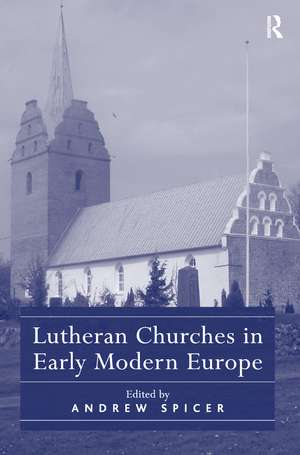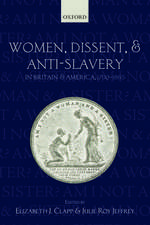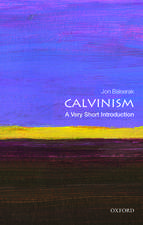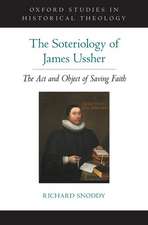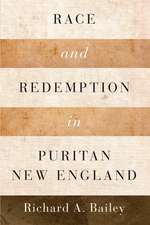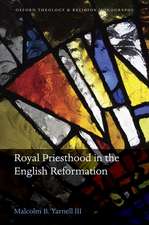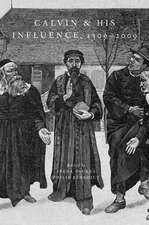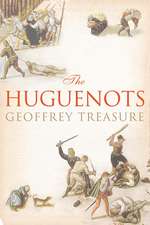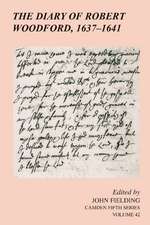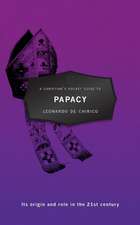Lutheran Churches in Early Modern Europe
Editat de Andrew Spiceren Limba Engleză Hardback – 28 mar 2012
| Toate formatele și edițiile | Preț | Express |
|---|---|---|
| Paperback (1) | 469.34 lei 6-8 săpt. | |
| Taylor & Francis – 24 mai 2017 | 469.34 lei 6-8 săpt. | |
| Hardback (1) | 1180.06 lei 6-8 săpt. | |
| Taylor & Francis – 28 mar 2012 | 1180.06 lei 6-8 săpt. |
Preț: 1180.06 lei
Preț vechi: 1439.10 lei
-18% Nou
Puncte Express: 1770
Preț estimativ în valută:
225.83€ • 233.30$ • 187.95£
225.83€ • 233.30$ • 187.95£
Carte tipărită la comandă
Livrare economică 25 martie-08 aprilie
Preluare comenzi: 021 569.72.76
Specificații
ISBN-13: 9780754665830
ISBN-10: 0754665836
Pagini: 536
Ilustrații: Includes 130 b&w illustrations
Dimensiuni: 156 x 234 x 30 mm
Greutate: 0.93 kg
Ediția:New ed
Editura: Taylor & Francis
Colecția Routledge
Locul publicării:Oxford, United Kingdom
ISBN-10: 0754665836
Pagini: 536
Ilustrații: Includes 130 b&w illustrations
Dimensiuni: 156 x 234 x 30 mm
Greutate: 0.93 kg
Ediția:New ed
Editura: Taylor & Francis
Colecția Routledge
Locul publicării:Oxford, United Kingdom
Cuprins
Contents: Preface; Introduction: Lutheran churches and confessional identity, Andrew Spicer; Early modern Lutheran churches: redefining the boundaries of the holy and the profane, Vera Isaiasz; Lutheran churches and confessional competition in Augsburg, Emily Fisher Gray; Epitaphs in dialogue with sacred space: post-Reformation furnishings in the parish churches of St Nikolai and St Marien in Berlin, Maria Dieters; Framing the sacred: Lutheran church furnishings in the Holy Roman Empire, Margit Thøfner; Marian imagery and its function in the Lutheran churches of early modern Transylvania, Maria Craciun; 'On Sundays for the laity ... we allow mass vestments, altars and candles to remain': the role of pre-Reformation ecclesiastical vestments in the formation of confessional, corporate and 'national' identities, Evelin Wetter; The material presence of music in church: the Hanseatic city of Lübeck, Matthias Range; Lutheran theology and artistic media responses to the theological discourse on the visual arts, Sven Rune Havsteen; Re-forming the confessional space: early Lutheran churches in Denmark, c.1536-1660, Birgitte Bøggild Johannsen and Hugo Johannsen; State church and church state: churches and their interiors in post-Reformation Norway, 1537-1705, Øystein Ekroll; Church furnishings and rituals in a Swedish provincial cathedral from 1527 to c.1660, Riitta Laitinen; 'Das "Geistliche Gebäwde" der Kirche': the Lutheran Church in early modern Estonia as a meeting place of theological, social and artistic ideas, Krista Kodres; Lutherans in Cracow - contesting the sacred topography, Agnieszka Madej-Anderson; Lutheran churches in Poland, Jan Harasimowicz; 'Hic coeli porta est, hic domus ecce dei'. Lutheran churches in the Dutch world, c.1566-1719, Andrew Spicer; Afterword, Susan C. Karant-Nunn; Index.
Notă biografică
Andrew Spicer is Professor of Early Modern European History at Oxford Brookes University, UK.
Recenzii
'Although thematically focused, the volume’s geographic breadth is expansive, covering Germany, Transylvania, Denmark, Norway, Sweden, Estonia, Poland, the Dutch Republic, and its overseas settlements in Batavia and Cape Town. The essays offer a capacious understanding of spatiality through their interdisciplinary explorations of material culture, theology, politics, and social context.' Renaissance Quarterly 'This collection of essays ... moves past a discussion of Lutheran images to address Lutheran material culture as a whole, from liturgical vestments to organ decoration. Departing from a Germanic-centred perspective, the European scope of the work allows for comparisons between those regions where Lutheranism was firmly adopted, in Germany and Denmark for example, and those countries where Lutherans were in a minority, such as Holland.' European History Quarterly 'The case studies brought together in this volume reveal a variety of circumstances faced by Lutheran worshipers across early modern Europe. The emphasis on diverse and distinctive characteristics and traditions in material culture within this wide geographical scope renders possible a comprehensive understanding of Lutheran Churches' layouts in the wake of the Reformation.' Sixteenth Century Journal
Descriere
Until recently the impact of the Lutheran Reformation has been largely regarded in political and socio-economic terms, yet for most people it was not the abstract theological debates that had the greatest impact upon their lives, but the physical alterations made to their local parish church. This collection of essays provides a coherent and interdisciplinary investigation of the impact that the Lutheran Reformation had on the appearance, architecture and arrangement of early modern churches. By focusing on ecclesiastical 'material culture' the collection helps to place the art and architecture of Lutheran places of worship into the historical, political and theological context of early modern Europe.
